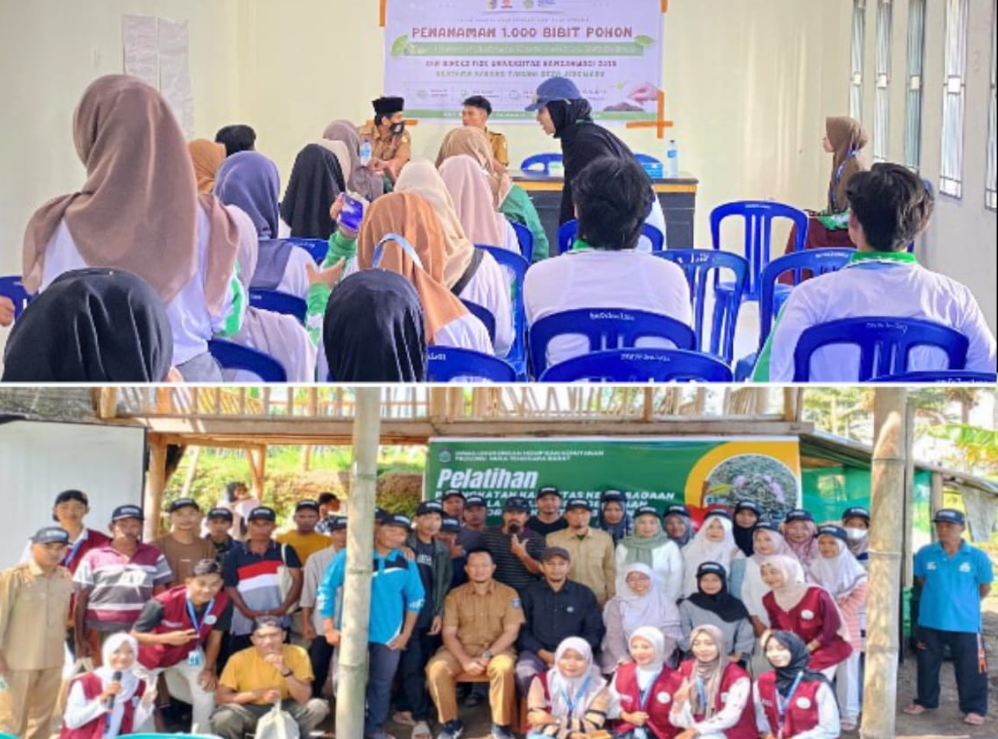
FISE Hamzanwadi University KKN Village Development Student Activities Begin to Have a Positive Impact on the Community
East Lombok – After more than a month of community service through the Bina Desa Community Service (KKN) program, students from the Faculty of Social and Economic Sciences (FISE) of Hamzanwadi University have begun to have an impact on the community.
In a number of villages where the KKN is located, activities targeting the social, educational, environmental, and productive economic sectors have begun to show real impacts and are directly felt by residents, although they still need a process and improvement.
One of the locations that is the center of KKN student activities is Kembang Kuning Village, Sikur District, students have carried out waste management training using the 3R method (Reduce, Reuse, and Recycle) and Black Soldier Fly (BSF). This is to reduce the impact of waste on the environment.
"3R aims to reduce, reuse, and recycle waste, while BSF (black soldier flies) help in processing organic waste into organic fertilizer or animal feed," said the Head of the Bina Desa KKN Committee, Dr. Muhammad Juaini, Tuesday (05/20/2025).
In addition, students run a nature school program. They invite children in Kembang Kuning village to study outdoors regularly. The goal is to increase the enthusiasm for nature-based learning so that they have an understanding and experience from an early age.
"Meanwhile in Tetebatu Village, they conduct socialization of UMKM marketing, UMKM data collection, literacy and numeracy tutoring for elementary school students, teaching programs at TPQ, Doo to Door health socialization and the Clean Friday program regularly," said Juaini.
Meanwhile, in Jerowaru District, precisely in Jerowaru Village, students are reforesting by planting a thousand trees and planting mangroves on the coast. The planting involved all KKN Bina Deda groups in Jerowaru District.
"In Pandan Wangi Village, students conduct socialization of pest and disease prevention in plants so that farmers can improve their skills in dealing with plant diseases so that they get increased harvests," he said.
In addition, said Juaini, they recycle paint containers into trash bins. This is done considering that environmental cleanliness is very important. They also empower mothers through the integrated health post program.
"Students also distributed hundreds of fruit seeds to be planted in the community as part of the greening, such as sapodilla, guava, durian, avocado, soursop, and eucalyptus seeds," explained Juaini.
Other activities include cleaning in addition to the Clean Friday program as a form of real action to love the earth. They also program literacy with the term berugak ajar which is carried out every day for elementary school children, and also conduct data collection on MSMEs.
Meanwhile, in Suela District, precisely in Ketangga Village, various activities are carried out according to the conditions and potential of the local village. One of them is the socialization of village potential with the theme of building a healthy and innovative life through moringa leaf crackers and others.
"The presence of KKN students is a breath of fresh air for our village. They not only share knowledge, but also become role models in working and interacting with the community. Some of their activities are extraordinary," said several residents.
Juaini further emphasized that KKN Bina Desa is designed to strengthen the role of universities in community development. Students are given space to innovate, design solutions, and implement them directly.
"This is proof that the role of students is not only as learning agents on campus, but also as a driving force for social change in the grassroots community," he concluded.
